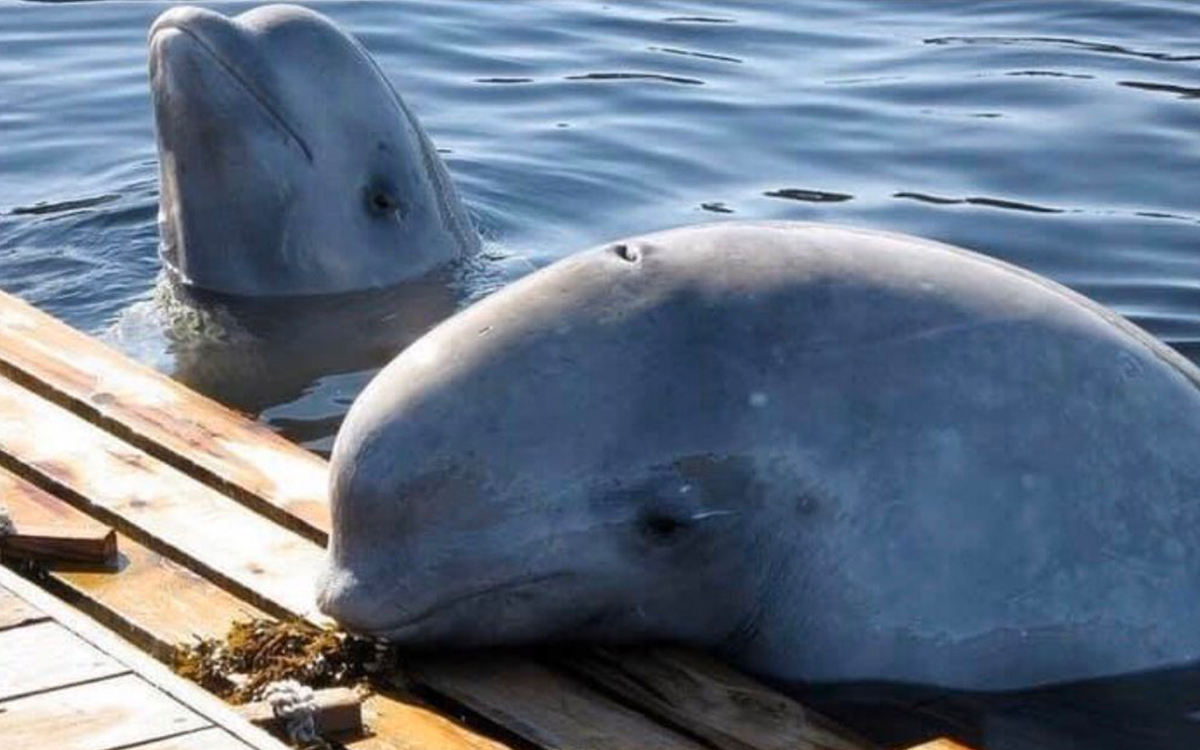
The last belugas in a whale prison
One Voice leads a nonviolent fight to defend animal rights and respect all life forms. The organization operates independently and is thus free to speak and act freely.
The last 50 belugas in a whale prison will soon leave their floating enclosures in Srednyaya Bay, even if their “owners” have tried to sell them to Chinese parks at the end. Embarking on two ships, they should be released in the Sea of Japan, in the middle of nowhere.
They
will escape the jaws of the new winter ice as well as a slow death at
the bottom of some Chinese pool in a dolphinarium, but their fate
causes the most serious concerns.
If the release of the 10 captive orcas was taken more seriously, we
would know more about the white whales, but we don’t. They have
since last June already been put back into the sea. More or less they
were released at the place of their capture, in Sakhalin Bay.
Nothing better than this for the final contingent of 50 belugas.
Packed
into dirty water within tiny containers in groups of five or six
individuals, they will be abandoned nearly a thousand kilometres from
their homeland.
It
is indeed in the bay of Uspeniya that the two vessels of the agency
VNIRO will throw them overboard like bulky packets, without satellite
beacon or any to track them, and without the presence of an
independent observer, refused by VNIRO.
What
will become of these juvenile belugas, many of which were taken from
their mothers when they were barely weaned and who are therefore
deprived of the experience necessary to survive in the wild? They
will be able to feed themselves, of course, because fish are abundant
in the Sea of Japan. But this region is also infested with North
Korean poachers who deploy their driftnets there, despite the
frequent raids by Russian border guards. A fate worse than death
awaits any beluga whales trapped in these nets!
No
chance for these ex-detainees to ever find their way back to the
Okhotsk Sea, where they come from. And very little chance of
encountering free belugas, because they only cross the bay of
Uspeniya in winter, during their migration to the north.
Why did they condemn them to such cruel conditions of transport, to such a botched release?
The
agency VNIRO says it’s because of the autumn storms that blocked
the road to Sakhalin.
But also because belugas do not have the
same prestige or the same market value as orcas. Russia has been
selling them at low prices to China for decades, where marine parks
have sprung up like poisonous mushrooms.
For decades, they have
been transported from one corner of Russia to the other in the bottom
of old dilapidated trucks, to amuse the spectators of a traveling
dolphinarium.
They will never know that these funny white clowns
when they spit water or are ridden by a hilarious trainer, actually
live in peaceful and complex societies, endowed with a vocal
repertoire of incredible richness, traditions passed down from
generation to generation and made up of loving families united for
life.
Less than 4,000 wild belugas remain in the icy waters of
the Russian Far East. And already 210 are languishing in Chinese
jails alone and no one knows how many more in Japan, Turkey or even
Russia.
So yes, this final evacuation carried out without a witness is a scandal!
Because
if Vladimir Putin’s orders were indeed carried out, as with regret
and dragging of the feet, it will undoubtedly be at the price of many
victims whose corpses will sink off and will never be found.
Now
the whale prison pens have to remain empty forever.
Russia
must finally give up catching orcas and belugas, it is the last
country in the world to still practice this, and strict and clear
laws must compel it! By supporting international experts and
courageous local associations active in the field, One Voice will do
everything in its power to try to convince them.
VNIRO
(Russian Federal Institute for Research on Fisheries and
Oceanography): research organization created more than 135 years ago
to scientifically support Russia’s activity in the field of fisheries
management, the coordination of the implementing fisheries research
plans and programs.